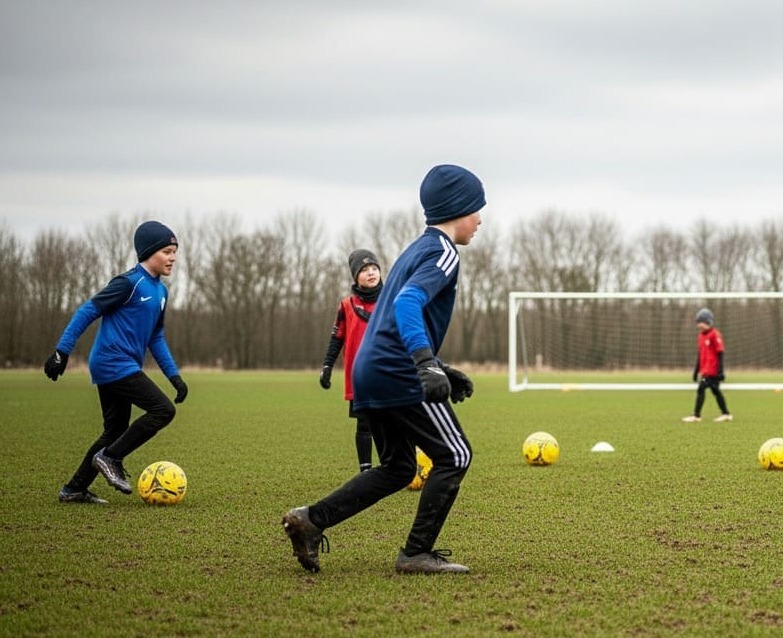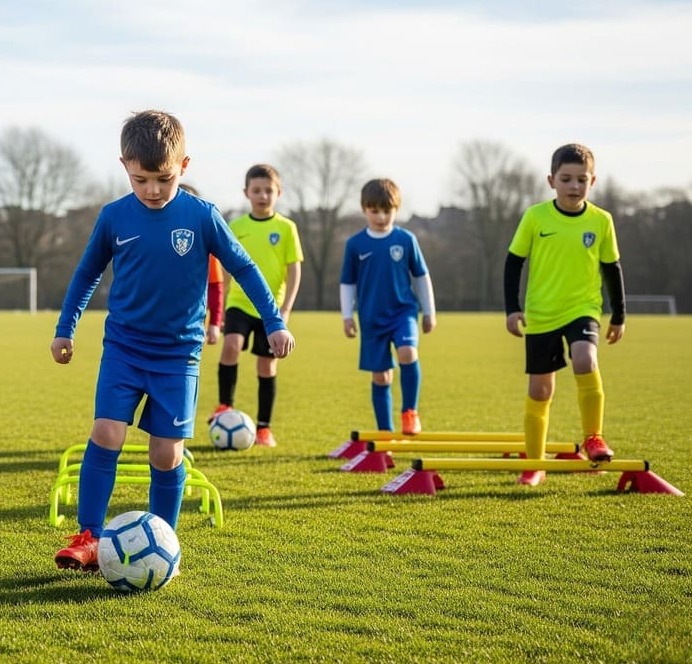How Football Builds Resilient, Confident, and Happy Kids
Football is more than a way to stay active - it’s a secret engine for mental well-being. The benefits of youth sports for mental health are clear: happier moods, calmer energy, sharper focus. Parents and coaches alike notice the difference after every session. Each drill lifts spirits while teaching life lessons, showing that health in sport goes far beyond fitness.
1. Building Resilience in Children Through Sport
Resilience is about bouncing back after setbacks - and football provides the perfect practice ground. Through mentoring, children learn to stay calm under pressure, reset after mistakes, and find courage in the next play. Low-stakes challenges on the pitch become preparation for real-world hurdles, from spelling tests to schoolyard disagreements.
a) Last-Minute Defeat
Trailing 1-2 with two minutes to play, a coach whispers: “Focus on the next ball.” That phrase teaches presence, not panic. Win or lose, the child leaves knowing they controlled their mindset - and that lesson lasts longer than the match itself.
b) Mid-Season Slump
When goals dry up and confidence dips, mentors ask players to list small forgotten wins - a clever pass, a brave tackle. This reframing shifts doubt into belief and shows children that progress comes in many forms, not just goals scored.
c) Team Transfer
Joining a new squad can feel overwhelming. Mentors ease the transition with listening, buddy systems, and encouragement. Soon, a once-nervous player is smiling, passing, and thriving - proof of the power of guidance and belonging.
2. Life Skills Learned Through Football Mentoring
Mentoring in football is a quiet classroom for life skills. Children learn to manage time, speak up, and work with others. These everyday wins become the real trophy:
- Time management: balancing training and homework with confidence.
- Communication: calling for passes and planning plays.
- Collaboration: valuing team success over solo moments.
- Confidence: celebrating wins and learning from mistakes.

3. Positive Coaching and Mental Health Benefits
Encouragement-first coaching helps children trust their instincts. Supportive feedback reduces anxiety and builds self-esteem. Quick mental check-ins or breathing drills give players tools to handle stress. The result? More resilient, happier children - on and off the pitch.
4. Character Development Through Football
Football shapes character as much as skills. Respect, fairness, and grit become part of every child’s identity when reinforced in training. Simple rituals - like end-of-match clap circles - remind children that kindness and teamwork are as important as scoring goals. These values echo in classrooms and friendships, strengthening a child’s sense of self.
Next Steps: Join Our Football Academy
At We Make Footballers, mentoring is built into every session. Across 106 UK academies, our coaches support more than 12,000 children each week, blending football skills with lessons in resilience, teamwork, and confidence. With small groups of just 10 players per coach, every child gets the attention they need to thrive. Our proven pathway has already helped over 250 players progress into professional academies. Book a free trial today and see how football can boost not just fitness, but well-being and resilience too.



